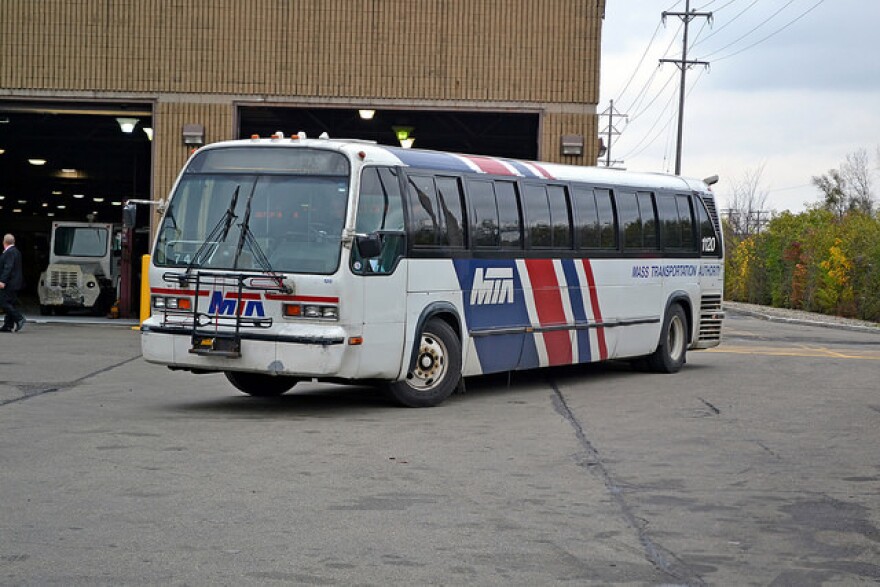The Trump administration has proposed making a 200-billion dollar investment in the nations infrastructure. But to pay for it, they’re planning to cut public transportation program and some local leaders say that is a bad idea.
Local and national public transportation officials are now working with Congress to avoid funding cuts.
Edgar Benning is the general manager of Flint’s Mass Transportation Authority.
He said other cuts over the last decade have forced Flint to keep vehicles older vehicles -- some 22-years-old -- on the road.
“We’re hopeful that instead of cuts, they’ll plus up the amount of money needed to address the aging fleet of vehicles we have throughout the country,” Benning said. “We’re hopeful that in the infrastructure package, it will include buses and bus replacement.”
He said the MTA spends between $30,000 and $50,000 a month maintaining older vehicles, and any cuts would hurt their ability to keep those vehicles on the road. He also mentioned the M-T-A is already running on a tight budget, with vehicles that should have already been replaced.
“We have a number of systems across the country including Flint, that has operating vehicles over 15 years old, in our case, 22 years old.”
Benning says even as funding has decreased, more and more people are using MTA’s services.
He said industry groups are making some interesting proposals, including one that would allow Medicare to help seniors get to medical appointments.
“So we can assist seniors that may have an option to use public transit, rather than end up in an ambulance when an ambulance is not necessary,” Benning said “Unfortunately today, medicare will pay for the ambulance but not pay for public transit.”
Benning said in the next 20 to 25 years, there will be 95-million citizens over the age of 65 in the United States making public transportation more important to that age group than ever before.

